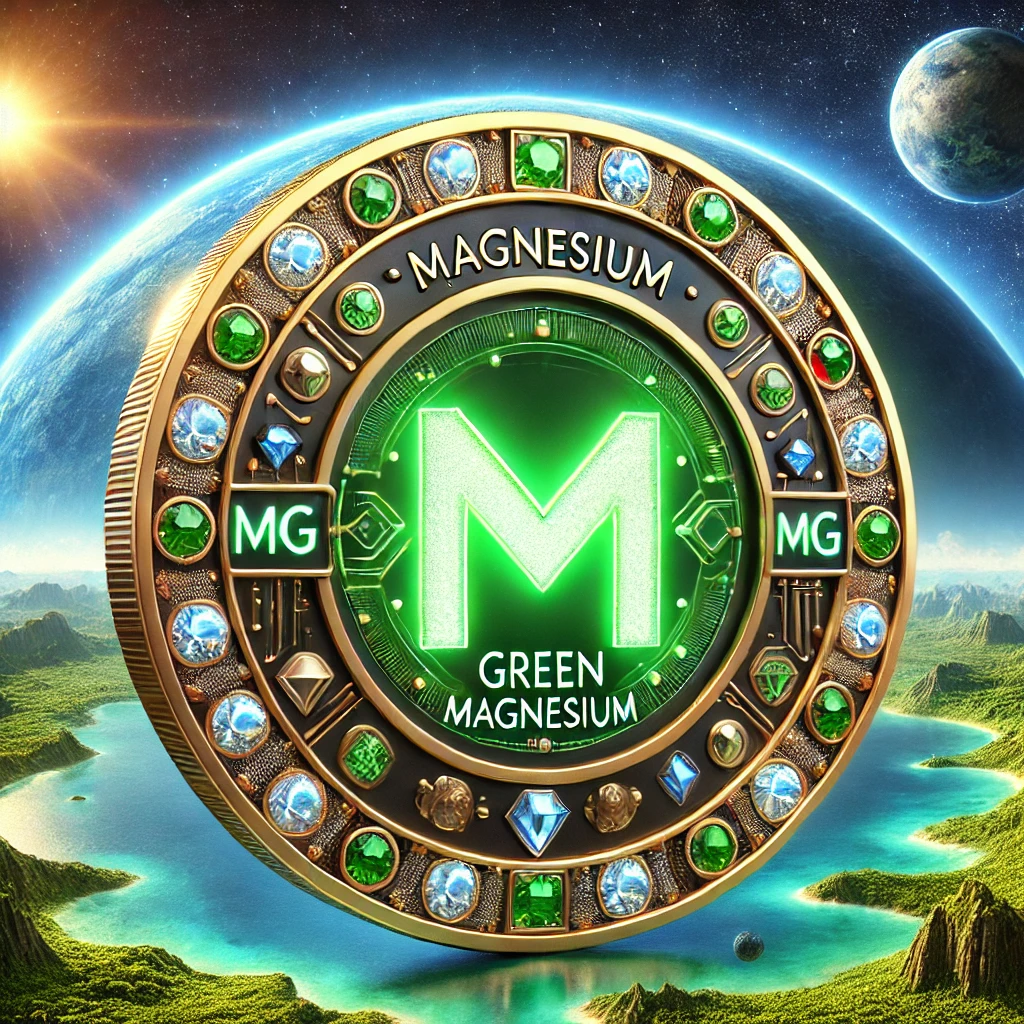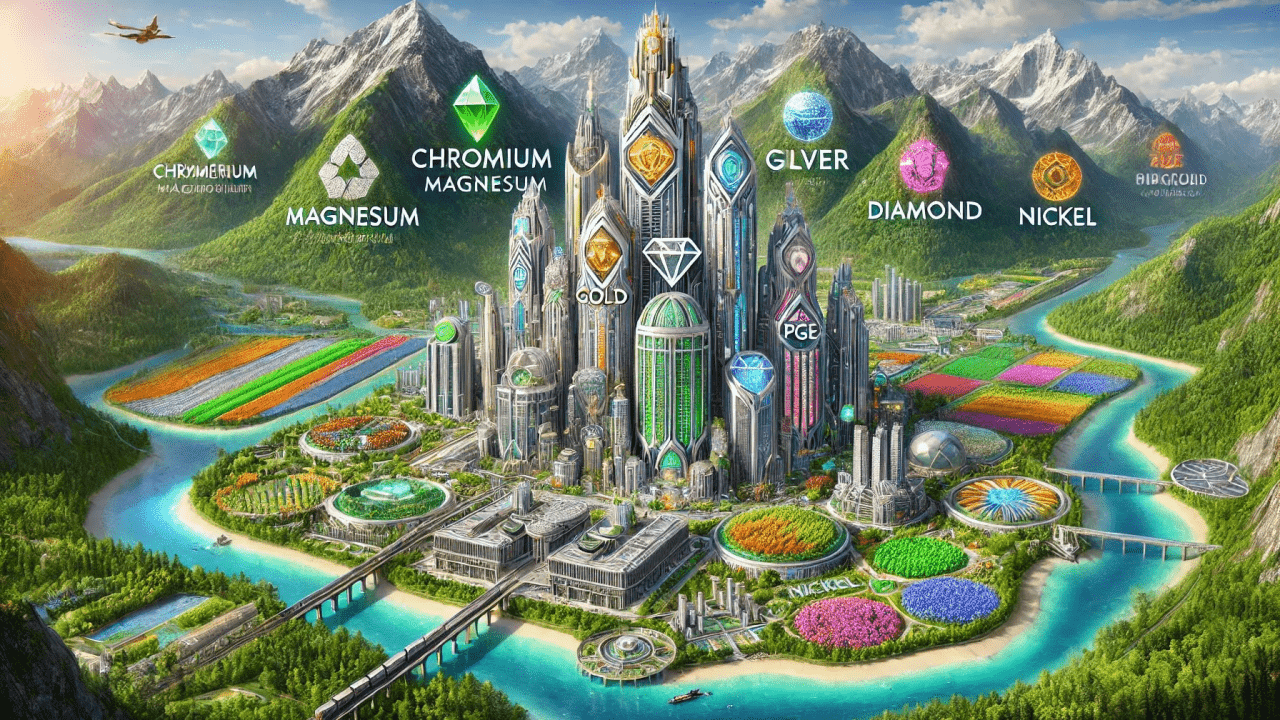
Today, Albanian Minerals and its subsidiaries, Green Minerals and Global Mining, proudly announce the culmination of a remarkable 30-year journey in geological exploration. Through extensive drilling surveys, Albanian Minerals have unveiled the world’s largest reserve of magnesium ore, the Olivine mineral. To delve deeper into this astonishing discovery, I reached out to Sahit Muja, the Founder and CEO of Albanian Minerals.
Sahit Muja, the New York-based executive, reflected on the journey, saying, “It’s been an extraordinary path, fraught with challenges. However, our steadfast focus, determination, and relentless dedication have made possible one of the most monumental discoveries in history: a staggering 100 billion tons of the highest-grade olivine on Earth. Our main objective was to identify viable reserves distinguished by their superior quality and ease of extraction, all while keeping costs to a minimum. The reserves we’ve uncovered boast unrivaled quality worldwide, with production costs at an all-time low in the commercial mineral mining sector. In comparison to other olivine reserves globally, our mine has the capacity to extract tens of millions of tons, provided there’s market demand. This is thanks to our vast reserves, exceptional quality, absence of intrusion, and the colossal 30-kilometer stretch of olivine ore. What’s more, there’s no need for soil removal or deforestation, making our operation environmentally sustainable”.
What’s the next step in commercializing this immense natural resource, and what do you envision for its future value?. Sahit Muja added, The Olivine mineral is a common component of Earth’s mantle, characterized by its silicate composition. While Olivine deposits exist globally, only a few boast high magnesium content without intrusive elements like asbestos. Commercializing any mineral requires financial viability and market demand. As CEO, my focus has always been on the future market potential and the development of science and technology to harness it. Magnesium itself is a vital mineral present in every living cell across biodiversity. It serves as a foundational element in numerous industries, essentially a building block ordained by nature. Without magnesium, life on this planet would be impossible.
As we observe the significance of magnesium, my assessments often revolve around its impact on nature and life. Being one of the lightest metals and widely present on the Earth’s surface, magnesium serves as a foundation for numerous materials. Its absence in alloys, refractory materials, and building materials is notable. I foresee a promising future for magnesium in the manufacturing industry, particularly in lightweight alloys offering substantial benefits for various moving objects across air, sea, and land. Moreover, in agriculture, there’s a significant demand for magnesium oxide in the fertilizer industry. Magnesium also plays a crucial role in construction, being essential for fireproof boards, refractory bricks, insulation mineral wools, and more.
Magnesium Takes Center Stage: Vital Element for U.S. National Security:
The Department of Defense, in collaboration with the Biden-Harris Administration and leading companies, has announced significant investments aimed at expanding the domestic critical minerals supply chain. This initiative aims to reduce dependence on China while promoting sustainable practices. Critical minerals serve as the foundation for various modern technologies and are crucial for national security and economic prosperity.
Sahit Muja, speaking on behalf of Albanian Minerals, Global Mining, and Green Minerals, highlighted the magnesium revolution, showcasing new innovations and technologies that pave the way for a trillion-dollar industry. These companies, holding the world’s largest magnesium reserves, are heavily investing in science and technology, with a particular focus on integrating AI. Muja has spearheaded the development of a forward-looking strategy to secure the highest-quality magnesium reserves globally, positioning these companies as leaders in magnesium production for years to come.
Anticipating substantial investments in green automotive and mobility markets, as well as renewable energy sectors like wind, solar, hydro, and green hydrogen, Muja emphasized the unprecedented scale of these investments and foresees further developments in these areas.
Magnesium’s lightweight and versatile properties offer significant opportunities for innovation across various sectors. Its broad applicability spans industries such as automotive, aerospace, transportation, military, mining, agriculture, manufacturing, electronics, and biomedicine.
In the automotive and transportation sectors, magnesium’s use in creating lightweight yet robust components can enhance vehicle efficiency, leading to fuel savings and reduced emissions. Similarly, in military applications, magnesium’s lightweight yet durable characteristics make it a preferred choice for equipment and technologies.
The use of magnesium in mining and drilling equipment underscores its resilience in harsh environments, contributing to improved efficiency and longevity of machinery. Moreover, its inclusion in aerospace designs can potentially advance future space missions.
Magnesium’s biocompatibility makes it suitable for biomedical devices, while its lightweight nature is advantageous in consumer electronics, driving advancements in lighter and more advanced electronic devices.
The global adoption of magnesium alloys by leading companies reflects its growing recognition and utilization across industries, attracting further investment and collaboration in magnesium-based technologies.
In conclusion, magnesium’s diverse applications and potential to revolutionize traditional industries make it an appealing investment opportunity. As industries prioritize lightweight, durable, and sustainable materials, magnesium emerges as a material poised to drive significant technological advancements.
The development of magnesium batteries, with higher energy density compared to lithium-ion batteries, holds promise for more efficient and longer-lasting energy storage systems. Research and development efforts, such as those at Tokyo University and the University of Hong Kong, underscore magnesium’s potential as a key player in the next generation of batteries, contributing to the transition toward sustainable energy storage technologies.
Moreover, innovative approaches, such as the development of magnesium hydride-based “Powerpaste” by the Fraunhofer Institute, further enhance magnesium’s role in energy storage. The Powerpaste’s high energy density and storage capacity highlight its potential as a viable alternative to lithium-ion batteries, driving advancements in sustainable energy solutions.
Additionally, initiatives like CO2 transformation and natural weathering, focusing on magnesium ore and olivine, offer promising solutions to climate-related challenges. By sequestering carbon dioxide and promoting environmental well-being, these approaches demonstrate the potential of magnesium-based technologies in addressing global sustainability goals.
Sahit Muja, Founder and CEO of Global Mining, Green Minerals, and Albanian Minerals, emphasizes the importance of water in sustaining life, industry, and agriculture. He highlights the critical need for investments in sustainable water management practices to ensure reliable access to clean water for communities and industries.
Furthermore, Muja stresses the interconnectedness between human life and the sustainable management of water resources. Addressing challenges related to water pollution and scarcity requires a comprehensive approach involving international cooperation, innovative technologies, and community engagement.
Muja’s long-term commitment to environmental and sustainable initiatives underscores the importance of addressing global challenges such as climate change and environmental degradation. By integrating natural solutions with economic opportunities, Muja envisions a sustainable and environmentally friendly future for generations to come.
Sahit Muja shared thrilling news this week as Metalplant, a Silicon Valley-based company, unveiled its groundbreaking technology, ushering in a new era of permanent CO2 sequestration and the production of carbon-negative metals like nickel and cobalt. These metals play vital roles in various applications, including the battery industry, green stainless steel, and numerous manufacturing processes.
Metalplant‘s journey has been marked by years of discreet collaboration with top scientists and universities worldwide. Muja expressed immense pride in the team’s achievement and the significant global impact poised to be delivered. In the face of environmental crises, Metalplant emerges as a leader in the 2024 green transition movement, spearheading the largest-scale hyperaccumulating commercial negative nickel farms. By leveraging cutting-edge nature-based technologies, Metalplant repurposes minerals, harnesses renewable energy, and revitalizes non-arable land to produce essential metals for the green energy revolution while actively combating excess CO2 in the atmosphere.
For every ton of nickel produced, Metalplant’s innovative process permanently sequesters an impressive 200 tons of CO2, offering a scalable, cost-effective, and enduring solution to propel the green transition movement forward. Metalplant’s role in one of the world’s most significant missions, scaling up carbon dioxide removal and supplying essential metals crucial for society’s clean energy transition and economic advancement, is pivotal. Established with the vision of facilitating global scale-up to gigatonnes per year of carbon dioxide removal at affordable rates, Metalplant aims to meet the growing demand for metals vital to the green energy transition.
HyperNickel™, Metalplant’s flagship product, embodies the company’s commitment to sustainability. Developed with responsibility at its core, HyperNickel™ is poised to become the greenest source of nickel globally, catering to companies prioritizing environmentally conscious supply chains. Metalplant’s technology mirrors elegant processes found in nature, accelerating natural reactions by optimizing conditions, making them millions of times faster than those observed in nature.
The conversion of CO2 into magnesium carbonates, along with other natural processes facilitating the eco-friendly removal of heavy metals for battery and green energy applications, presents a comprehensive and sustainable solution. Additionally, the gradual dissolution of magnesium olivine in seawater enriches biodiversity with essential minerals, mitigates ocean acidity, and permanently converts CO2 into valuable substances.
Metalplant‘s substantial investment in developing this cutting-edge technology underscores its unwavering commitment to environmental stewardship. With a meticulous focus on evaluating the impact on land, water, and air through comprehensive analyses, Metalplant’s entirely nature-based process and technology harness the innate abilities of the natural world.
Inspired by enhanced weathering phenomena observed in various ecosystems globally, Metalplant has achieved the remarkable feat of expediting the natural process of CO2 sequestration and permanent storage by converting toxic CO2 into magnesium carbonates, a vital nutrient for biodiversity. Through Metalplant’s innovative technology, each billion tons of olivine can now permanently sequester an equivalent amount of CO2 while producing 3.4 million tons of nickel and other essential minerals, translating to approximately $200 billion in revenue for every billion tons of olivine minerals utilized. With the world’s largest hyperaccumulating farms, unparalleled reserves of olivine, cutting-edge technology, and an exceptional team, Metalplant stands at the forefront of this transformative industry.
As the Co-founder and Executive Director of Metalplant, Sahit Muja heralds the innovative technology facilitating the permanent sequestration of CO2 with every billion tons of olivine used, while concurrently producing 3.4 million tons of nickel and other essential minerals. This groundbreaking achievement translates to an astounding $200 billion in revenue. Backed by Metalplant’s expansive hyperaccumulating farms, unparalleled olivine reserves, cutting-edge technology, and an exceptional team, the company leads the charge in this transformative industry.
Reflecting on decades of hard work, challenges, and unwavering perseverance, Sahit Muja emerges as an Albanian-American billionaire from New York, with a remarkable net worth exceeding $3.5 billion. Renowned globally in business and technology spheres, Muja champions innovative solutions in clean energy and environmental sustainability. His pivotal role as Co-founder of Metalplant drives the revolution in green nickel production.
In his capacity as Chairman and CEO of influential enterprises such as Global Mining, Green Minerals, and Albanian Minerals, Sahit Muja holds significant sway in business, investment, and cutting-edge technologies on a global scale. His impact spans diverse sectors, including mining, metals, minerals, oil, natural gas, renewable energy, and pioneering green technologies.
Muja’s strategic investments in mining have yielded remarkable geological discoveries, uncovering over 1 trillion tons of valuable minerals worldwide. Presently, he boasts the world’s largest reserves of magnesium olivine, renowned for their exceptional quality, along with one of Europe’s largest chrome ore reserves. Additionally, Muja’s portfolio encompasses substantial reserves of nickel, cobalt, gold, silver, copper, platinum, palladium, aluminum, iron ore, manganese, and Rare Earth Minerals, underscoring his steadfast commitment to sustainable resource development.






























